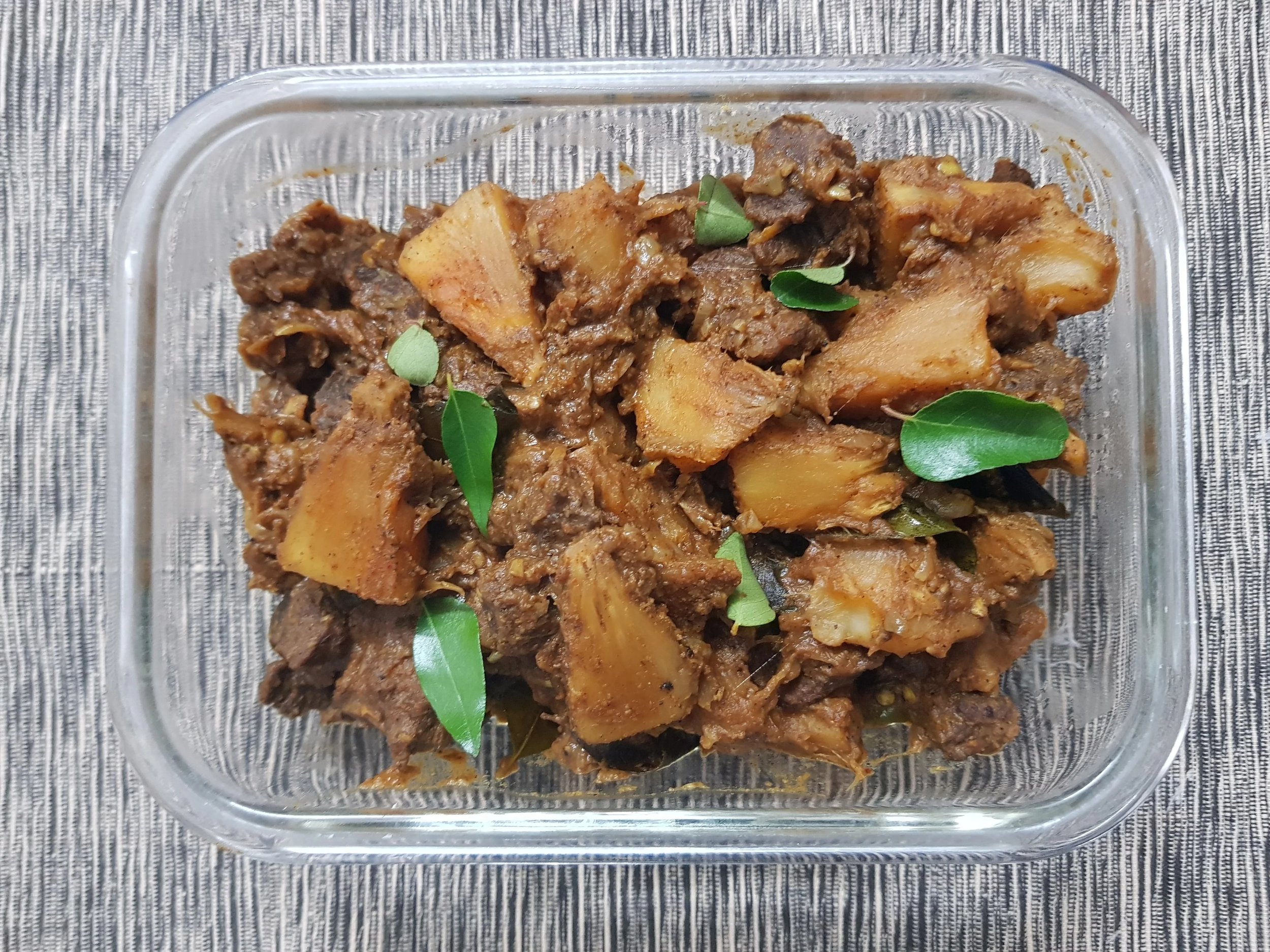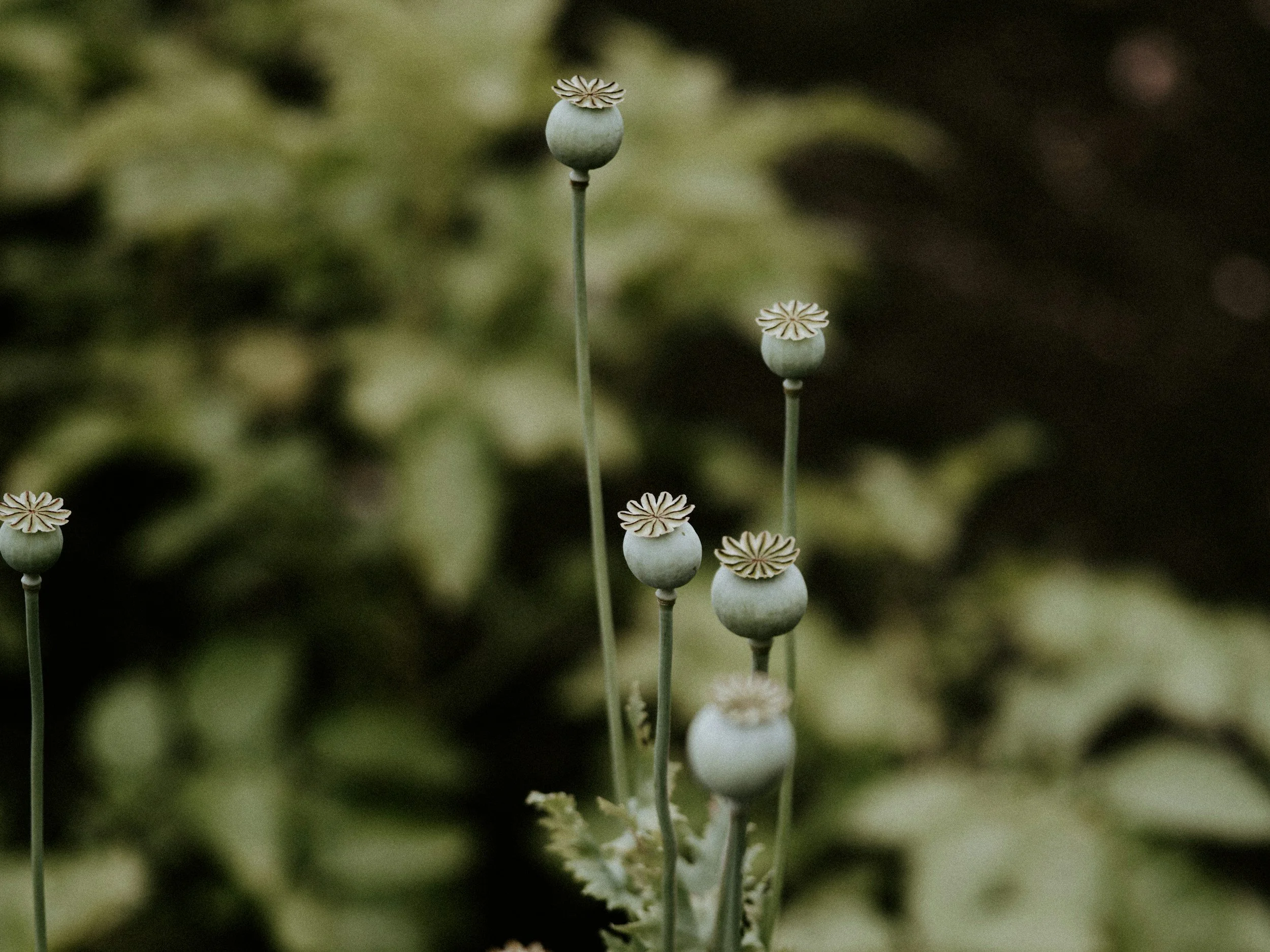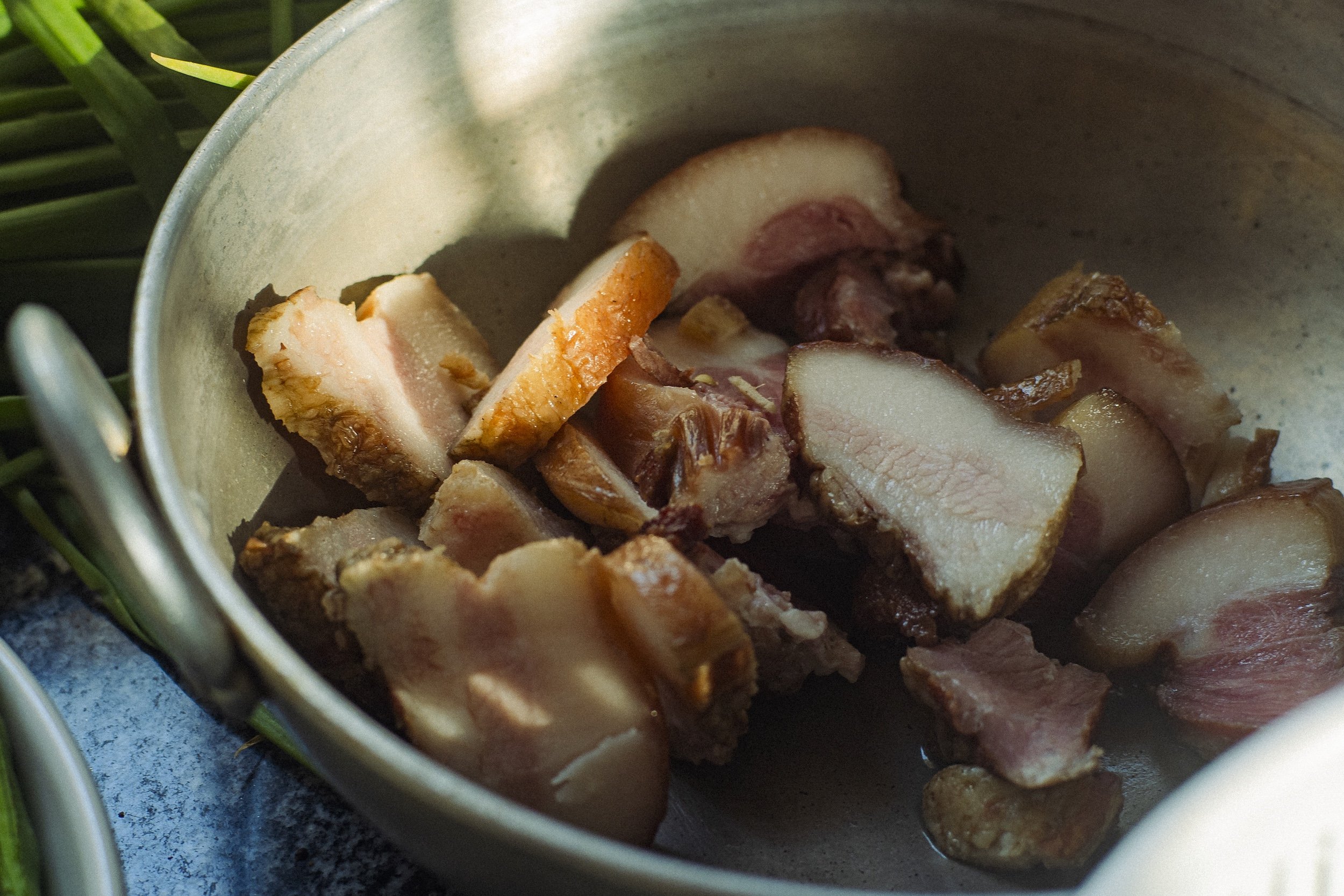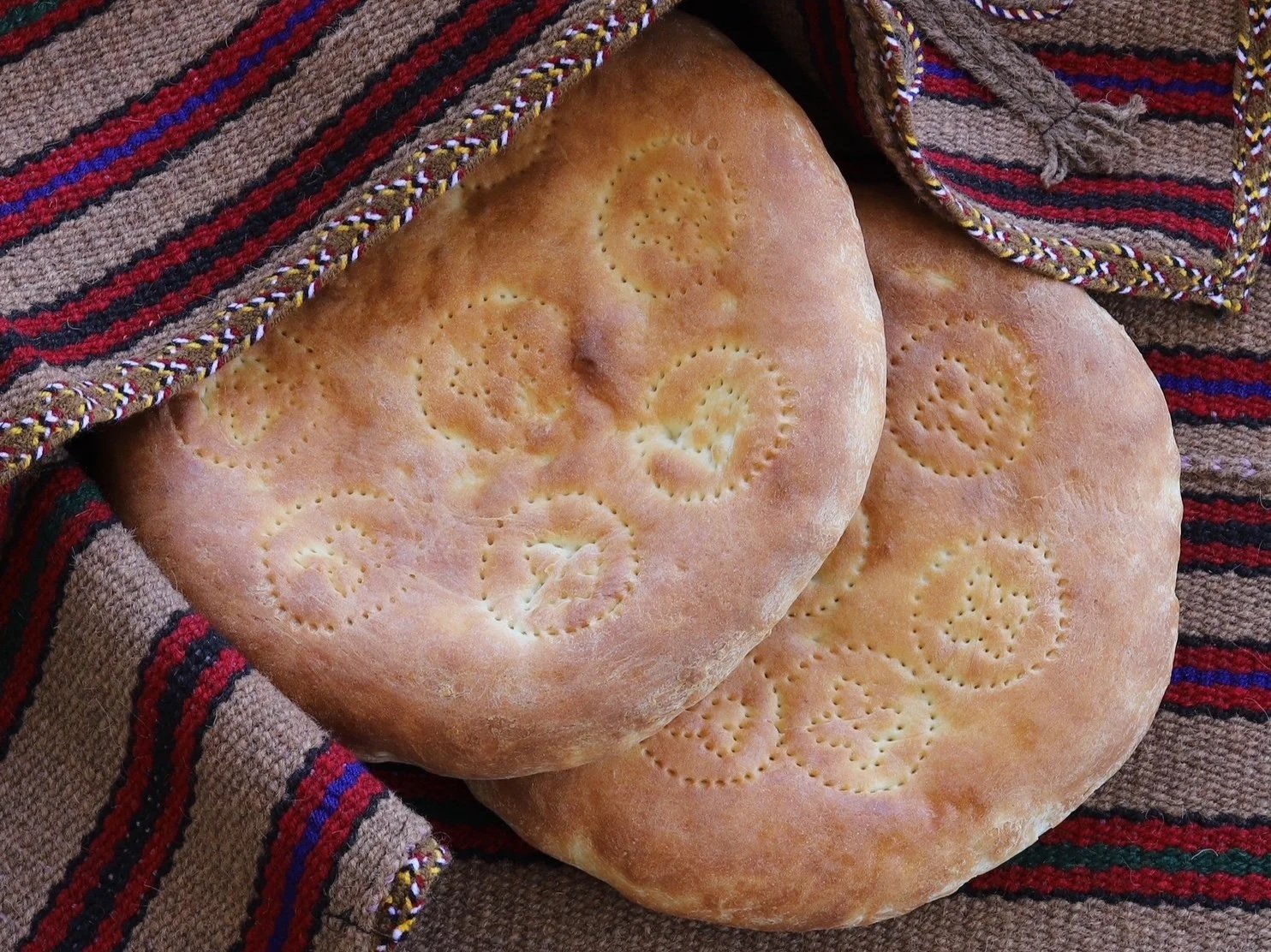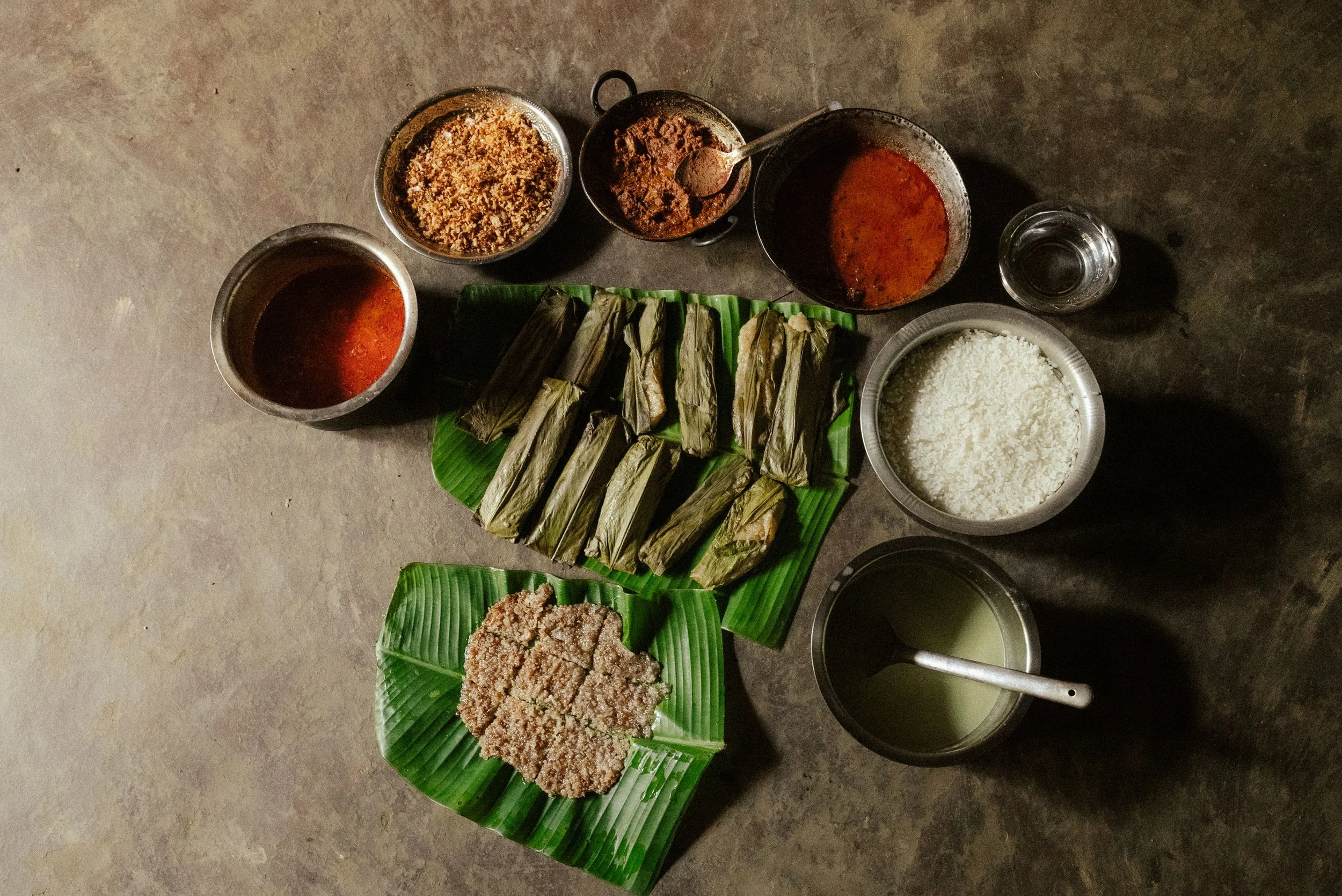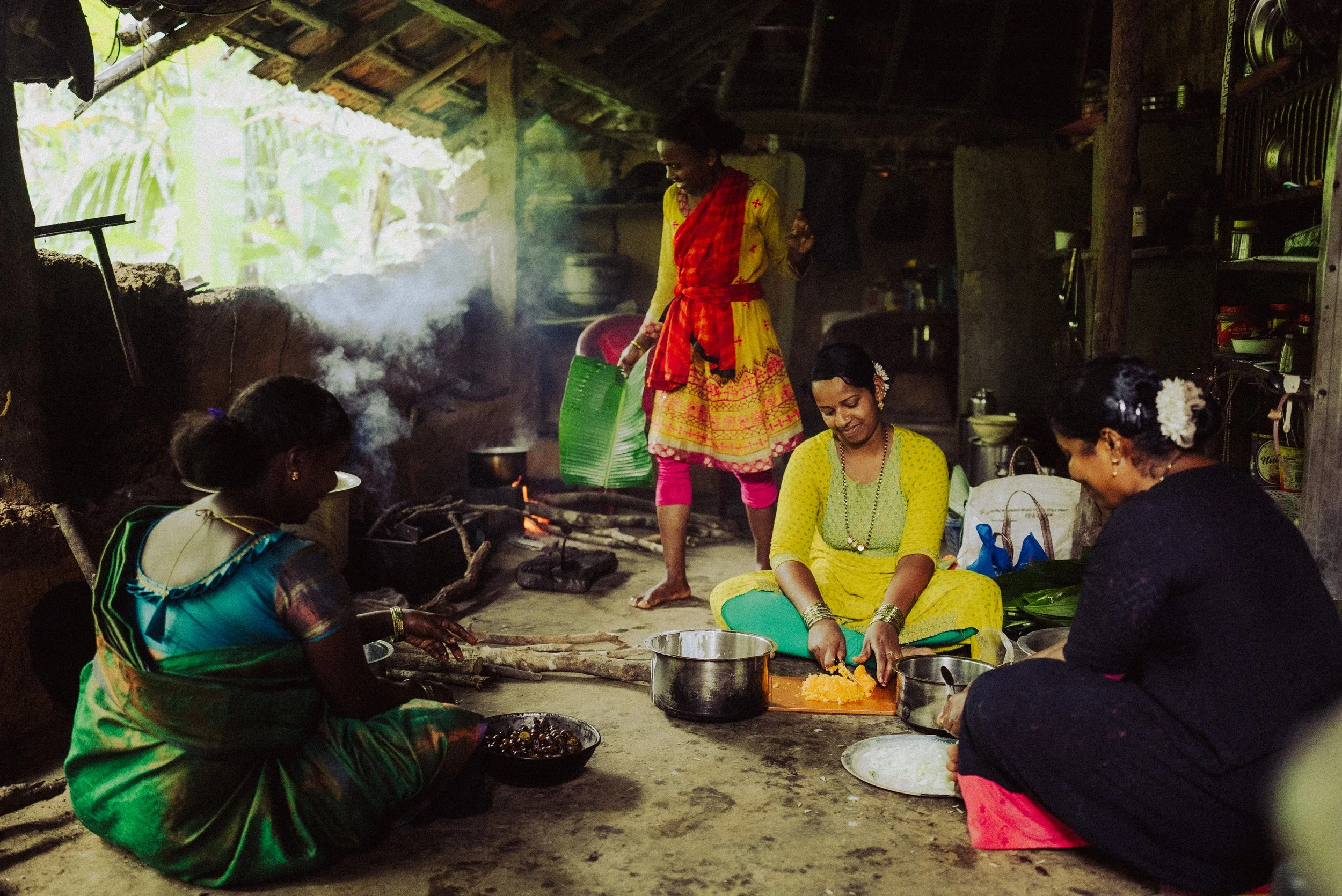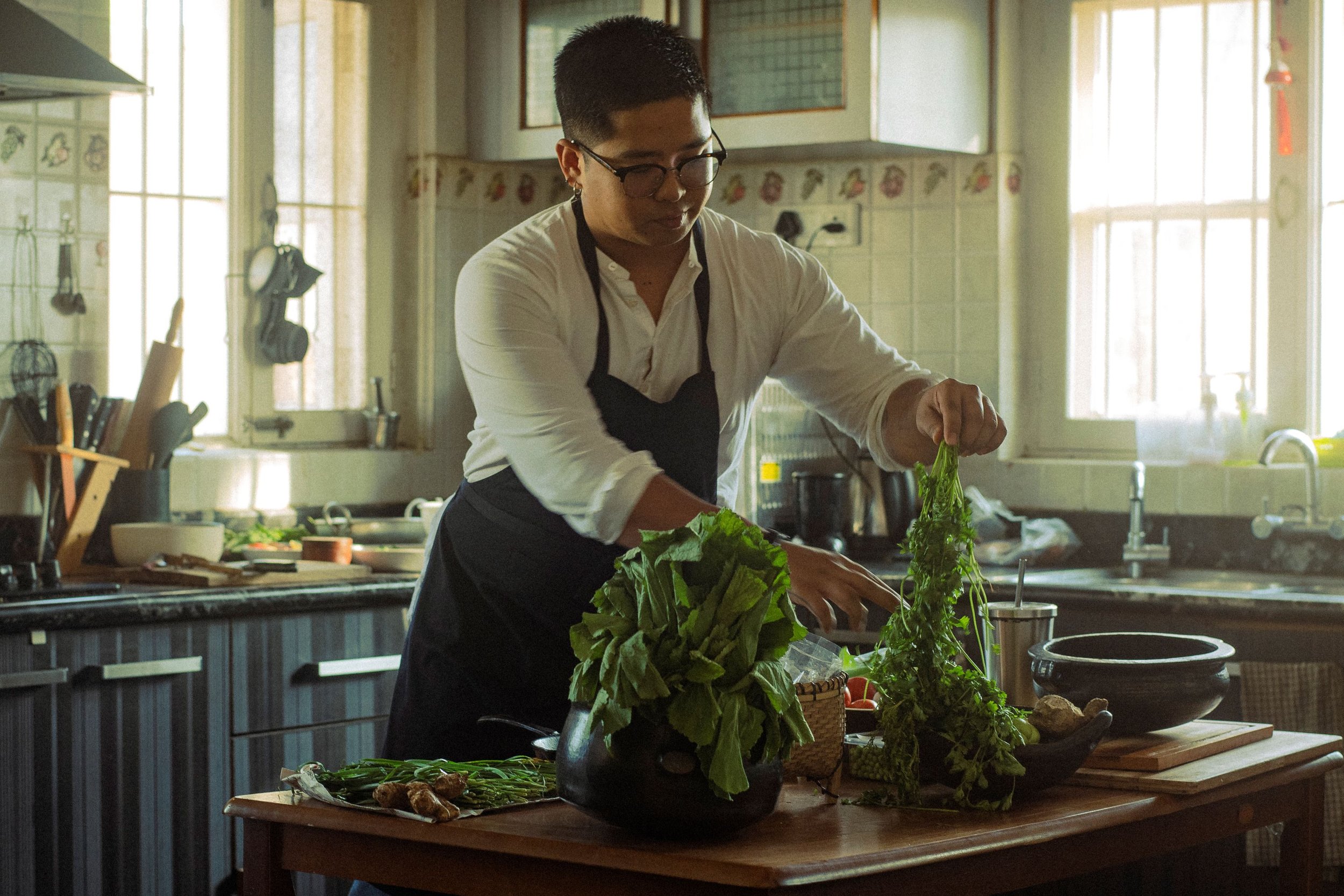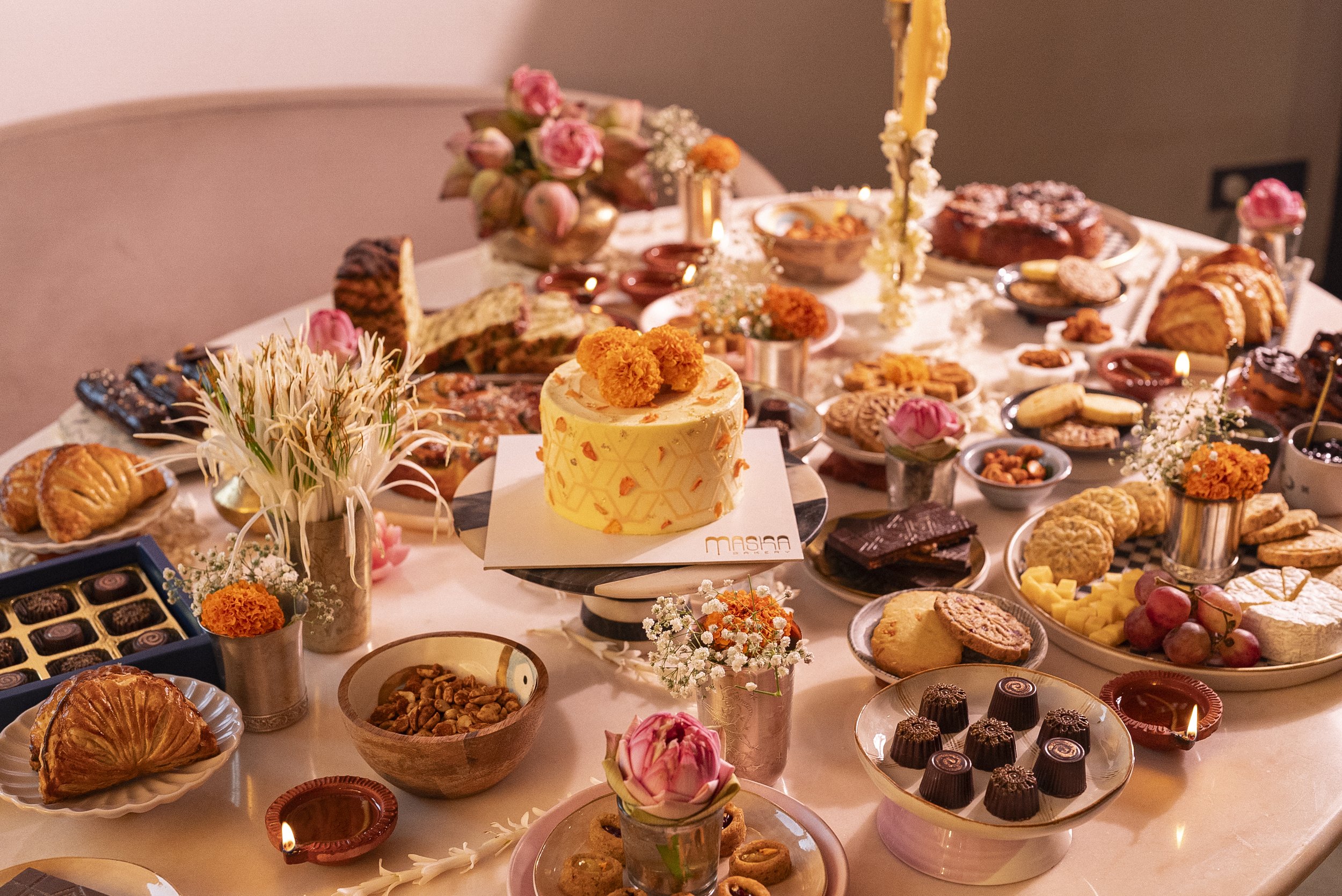The Singular Tenacity of Usha Prabakaran

Sai Tulasi Neppali profiles Usha Prabakaran, whose cookbook, Usha’s Pickle Digest, earned a cult following over the decades, and finds the remarkable quality that sets Usha apart from other cookbook authors — she is a stoic in an epicurean world.
Usha Prabakaran is an unusual writer. She pours years of work, even decades, into a single book, but shrugs off the fame and money it brings in. You might say writing a cookbook is a feat of strength by any measure. But writing one with one thousand recipes of a single type of dish? Well that’s just Usha’s niche. In 1998, she self-published Usha’s Pickle Digest, her first cookbook of 1,000 pickle recipes. Now 20 years later, she is readying to bring out her next volume: 1,000 ways to make rasam!
I met Usha last year at her cul-de-sac home in a leafy neighbourhood in Chennai. I was a fledgling writer, researching a piece on Indian pickles. All roads, it seemed, led to Usha’s book, the ‘pickle bible’ as it’s known. But it was impossible to find in stores, so I decided to track down the author herself, and plead for a copy. After a few emails and phone calls, she did me one better and invited me to her home.
On the day of our interview, she came prepared with a notebook full of answers to my numerous questions on pickles, and let me pick her brain for hours. Over breakfast and lunch in her roomy kitchen, I spied her numerous pickle jars ,and gorged on the softest idlis and the winningest garlic kuzhambu. But all the while, I also had a secret quest. To me, Usha was an anomaly — a stoic in a world of epicureans. A woman with a one-track mind. Every time I mentioned her work to a friend, I was met with disbelief. “One thousand pickles?” they’d exclaim. What floored us wasn’t the boundless diversity of pickles, but the sheer stick-to-it-iveness that a task of such magnitude demanded. Because, let’s not forget, that compiling a thousand recipes meant several more had to be tested, tweaked, and documented. “I had about five thousand recipes, but I had to whittle them down,” Usha mentioned, coolly. Few of us can sustain interest on a project for more than a few months, let alone decades. What drove her, I wondered. And could I too imbibe her grit?
Usha’s tenacity developed early on in her life. Her father was the sole earner supporting a large extended family but he was uncompromising about his children's education. She and her sister were enrolled in one of the best schools in the city, and signed up in every extracurricular activity on offer: the veena, ham radio, karate, driving, yoga, boating. “He taught us everything the boys did,” Usha said. He impressed on them a deep belief in independence and self-regard. Years later, when Usha would decide to pursue her budding love of cooking instead of practicing law, her father was not pleased. “Did I bring you up for these mundane things? Pots, pans, and ladles?” he said, visibly disappointed. But to her, it didn’t matter whether she worked at NASA or in the kitchen. “It is not important what people do, but that they do it with passion, commitment and focus,” she said to her father. Usha’s pickle book, which her father was alive to see, would be a symbol of those very qualities. In a family of high achievers — a sister who retired from the IAS, a husband who was a successful property-developer, and a son (Prajnesh Gunneswaran) who is ranked as India’s top singles tennis player — Usha has more than held her own.
The story of how Usha’s Pickle Digest came to be is almost comical, given how iconic it has become today. The book almost willed itself into being. She never meant to write it at all. It began as a collection of 25 recipes that she scribbled into a notebook, and would transcribe copies of, for friends. But the more she delved into the pickle world, the more recipes she uncovered and documented. Years into it, her collection grew so significantly that compiling it into a book seemed the logical endpoint. But even then, the book was simply meant to be a convenient way to share recipes with friends and family. Which is why she had just 1,000 copies printed, and gave them out for free, until she nearly ran out of copies herself.
But just as the book was being readied for publishing, she had a life-changing setback. On the phone with a friend one morning, she suddenly began to talk gibberish before crashing to the floor. She recalls touching the blood oozing from a gash on her head and in a state of delirium dismissing it as kumkum. She was diagnosed with an aggressive brain tumor that would take several years and many surgeries to beat back. Her published book would arrive while she was still in the hospital.
The book flew under the radar for years until one copy found its way into the hands of food columnist Vikram Doctor who wrote about it calling it ‘seriously impressive’. Over the years, the book’s rarity and undeniable value made it a cult favourite amongst cookbook collectors. Even the legendary New York cookbook store Kitchen Arts & Letters was writing to Usha requesting copies. Only last year, 20 years after its first run, her book became available for purchase on Amazon.
“How does one do it? Write such far-reaching books?” I asked her. Well, this is the Usha Prabakaran way: Eat with curiosity. Ask your friends, relatives, and neighbours to share their recipes. If you taste a delicious rasam at a wedding, ask the caterer. If a pickle catches your eye at a restaurant, ask the chef. Your son’s math teacher’s sister-in-law has a recipe? Ask her. Don’t take no for an answer. Take notes. Rush back home, try them out. Tweak, tweak, tweak until the salt, sweet, spice and tang are balanced to your satisfaction. Document the recipe. File it away. Repeat a thousand more times. It only takes a few years.
The result of such an unabashed inquiry is that her books introduce lesser-known indigenous ingredients to a wide audience. She pickles not just mangoes, tomatoes, and gooseberries but also lotus stems, banana flowers, noga tenga berries, and bamboo shoots. In her soon-to-come rasam book, recipes make use of beetroots, plantain shoots, betel leaves, neem flowers, drumsticks, rose apples, turkey berries, and tender coconut meat. And they are grouped in such ornate category names as ‘enigmatic balance’ (beetroot and carrot rasam), ‘anger busting’ (spicy green chili rasam), ‘modest pleasures’ (kanji), and ‘pranic notes’ (ash gourd rasam with buttermilk).
Here is a pro-tip, should you get your hands on one her books: flip to the last section, and lose yourself in the fascinating wealth of knowledge in the appendix tables. There is a table that translates ingredient names into eight regional languages. Another lists the common adulterants and ways to detect them. In her upcoming rasam book, you will find rows upon rows of some 150+ substitutions (‘No chilli powder? Mix one-part black pepper and two-parts oregano’). It even has a compendium of common Indian cooking ingredients, their culinary uses, pairings, and health benefits. Vikram Doctor rightly said about the appendix of her pickle book: “those tabulations alone are worth the price of the book.”
Usha’s books are also remarkable in an especially wonderful way. Despite their heft, they do not overwhelm. The reader is instead infused with the confidence to cook, better yet, experiment. Thumbing through pages of simple, clear instructions, you begin to understand that thousand is just a number; the combinations are endless, really. It no longer feels intimidating to wrangle some cucumbers into a jar to make a cucumber-coriander pickle, or to throw in a wayward beetroot or carrot into a delicious rasam. This approachable quality of her books is every bit intentional. “My books are not coffee table decorations. They must be used,” she asserts. She writes to demystify, to help us tame even the unruliest of vegetables into sustenance.
Only a few months after our meeting, Usha’s life would be whiplashed by both tragedy and sudden fame. Her pickle book catapulted to fame overnight, after it featured in a New York Times article. A barrage of publicity followed. But few knew that between interviews and writing columns, Usha was in and out of the hospital, tending to her sick husband who passed away just days before their son’s wedding. Meanwhile, her own health has been flailing for years. The aftermath of her tumour left her immuno-compromised, asthmatic, and at risk of epileptic seizures. Enough pain to setback any lesser writer, but even in hospitals, Usha would scribble away notes to interview questions. “It is difficult for others to comprehend my drive, how deeply I am involved in a project,” she told me.
Those who know her know that fame or no fame, Usha carries on just as she always has, testing recipes and writing with every bit of energy she can muster. “The bigger you get, the more, the humbler you should become,” she tells me. When her health allows, she still works late into the night, putting finishing touches on her upcoming rasam book, which she has been working on for years. Despite the turbulence in her life, it is her love for the whole book-writing process — the research, the cooking, the documenting, even the endless editing — that keeps her lively.
Usha is now 65 years old. She is already dreaming of her next book. It will no doubt be another ambitious project. And she will no doubt chip away at it, year-in and year-out. And once it is done, she will offer it as her gift to the culinary world, seeking little in return.
Sai Tulasi Neppali is a freelance writer based in Hyderabad, India. who writes stories about food — origins, culture, trends, policy, science, and agriculture.
ALSO ON GOYA JOURNAL
